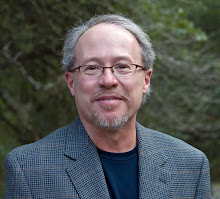An explosion rattled the windows of my home in Nacogdoches on Feb. 1, 2003. I went outside on a brilliant Saturday morning, wondering if there had been a tanker explosion on nearby U.S. Highway 59. A contrail in the sky reminded me the space shuttle Columbia was about to pass overhead. Just a really loud sonic boom, I thought, and headed to town to drink coffee with friends.
The television delivered dreadful news. Contact with Columbia’s crew had been lost. Then the phone rang at the store. Pieces of the shuttle were raining down all over town. I was then editor and publisher of the Nacogdoches newspaper, so I bolted out of the store and headed to the office, calling staff members on my cell as I raced down Raguet Street. Among those answering and coming to work was Johnny Johnson, now the editor of the newspaper I now publish outside Austin.
Johnny reminded me the other day that one of the first two NASA astronauts on the scene in Nacogdoches — just a few hours after pieces of the shuttle landed downtown, in folks’ backyards, in pastures and forests across Deep East Texas, were Greg Johnson and Mark Kelly. There’s a widely distributed photo of Johnny following the astronauts as they look for pieces of shuttle debris and the remains of their colleagues. Kelly is the husband of Gabrielle Giffords, the Arizona congresswoman shot recently in that horrific attack in Tucson — now making what appears to be a truly miraculous recovery.
I was mainly glued to a computer screen those first several hours, taking dictation from our reporters and cobbling together stories for the wire and our sister newspapers’ websites. It soon became bedlam in our building, as other news organizations arrived and asked to borrow space. The phone rang unceasingly, reporters from all over the world calling to get information. Our small city soon was filled with television satellite trucks. I looked up once from my terminal to see the mayor, a golfing buddy, being interviewed on CNN.
When I finally was able to leave the office to drive around town, the scene was surreal. National Guard members stood watch over pieces of the shuttle cordoned off by yellow caution tape. Every hotel parking lot was filled. The Exposition Center became a staging ground for the recovery efforts. Besides the media, hundreds of volunteers had arrived literally from all the country to help in the sad, grim effort to help NASA not only recover the remains of the seven astronauts who died, but to find as many pieces of the shuttle as possible, so that the effort to determine why this had happened could commence.
Our small newspaper staffs, in Nacogdoches and Lufkin, worked horrendous hours those first several days, feeding the websites and our sister newspapers across the country. I think that event really crystallized, for me at least, the power of the Web to get information out nearly instantly to folks across the globe. We had folks finding our site from everywhere from New Zealand to Norway. All of us working the story felt that strange mix of exhilaration and deep sadness that comes with covering a tragedy of such magnitude. We were doing our jobs as best we could, with no real time to mourn or reflect on this horrific event. That would come later, when the satellite trucks had left.
A few weeks later I went out to a pasture where I ran some cows. Crews of Native American firefighters who worked usually fighting forest blazes out west had been deployed to scour the East Texas countryside, marking any spot they found shuttle debris, no matter how small. That 10-acre pasture was dotted with small blue flags, dozens of them. That’s when I wept and prayed for the Columbia seven, whose lives ended on a beautiful, sunny day in the skies over Deep East Texas.
Originally published in the Hill Country News (Cedar Park, Texas), February 10, 2011.
Thursday, February 10, 2011
Subscribe to:
Post Comments (Atom)



Gary,
ReplyDeleteThanks or your moving comments on that awful day. You guys at the paper did a wonderful job 'letting us know.' I hope you never have to do such a story again; however, if you do, I know it will be done right.
Jay, still in Lufkin